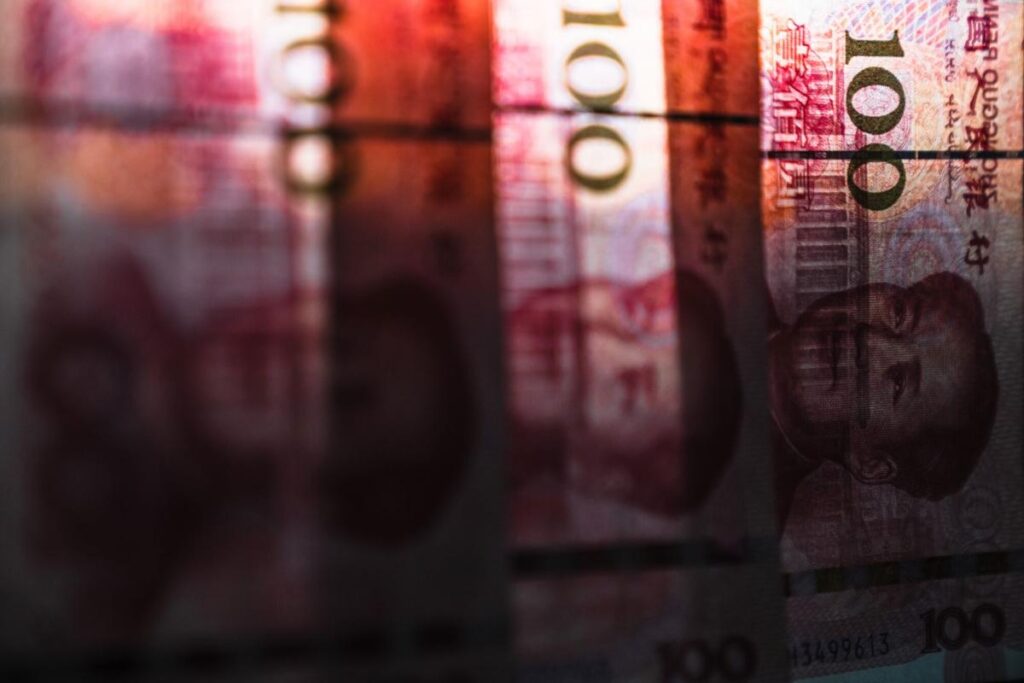(Bloomberg) — For the day at least, the optimists are driving China’s markets on bets Beijing is finally adopting a more aggressive growth policy, and will soon unveil a series of supportive measures.
Most Read from Bloomberg
The Politburo statement on Monday is spurring rallies in Chinese stocks, the yuan and the dollar bonds of developers after weeks of doubts. The question for many investors though is whether measures will follow through, and be able to tackle daunting challenges from local government debt to a slumping housing market and high youth unemployment.
While the statement from the ruling Communist Party’s 24-member Politburo fell short of announcing large-scale stimulus, Macquarie’s economists are arguing that it’s setting the policy tone for the second half. Yet, Chinese markets have swung from wild optimism as the nation emerged from strict Covid-restrictions to worries about stuttering growth, with Beijing repeatedly disappointing traders expecting stronger support.
“We are standing at a crossroads with many asking what type of policy are we waiting for,” said Andrew McCaffery, global chief investment officer at Fidelity International. “Clearly, markets have been disappointed as they anticipated more rapid improvement, but they are now beginning to rationalise their growth expectations. Our view is that this somewhat unexciting period will eventually give way to a more positive market tone.”
Read more: China Holds Off on Major Stimulus as It Signals Property Easing
The Hang Seng China Enterprises Index, which tracks major Chinese companies listed in Hong Kong, gained as much as 4.5%, the most since June 2. The onshore yuan rose as much as 0.6%, with traders reporting that state-owned banks were also seen supporting the currency.
On the mainland, the benchmark CSI 300 Index of shares climbed 2.6%, the most since November. Overseas investors net purchased 15.3 billion yuan ($2.1 billion) of onshore stocks via the trading links in the morning session, set for the biggest inflow since January. Turnover in Shanghai and Shenzhen is also on track to top the 1 trillion yuan mark.
The rally is widespread, with gains from retailers to technology companies. Country Garden Holdings Ltd. jumped 17% in Hong Kong as the major developer led gains among property stocks and their dollar bonds as Beijing pledged an “adjustment” of restrictions for a sector plagued by liquidity shortfalls and slumping demand.
Elsewhere, commodities sensitive to the property industry rose as well. Iron ore rose as much 1.7% in Singapore, while copper extended gains after closing up 0.8% on the London Metal Exchange on Monday.
Strategists are picking at the nuances in the statement, with some saying there’s a stronger recognition of the challenges. Others point to the shift where driving domestic demand was seen as more important than an export-oriented industrial policy.
The Politburo’s language on property — which accounts for up to 20% of GDP once related sectors are added — was also softer than in previous meetings. It omitted President Xi Jinping’s signature slogan that “houses are for living, not for speculation” for the first time in a mid-year review of the economy since 2019.
“They said targeted but ‘powerful’ measures can be expected,” said Kerry Goh, chief investment officer at Singapore-based multi-family office Kamet Capital Partners Pte. “So far, I’ve only heard of ‘modest’ policy stimulus from the government. So the choice of wording is interesting. We are in unchartered territory, even in terms of them saying they will prioritize consumption over industrialization.”
Here Before
Yet, there are plenty of skeptics. Afterall, Chinese stocks have been on a downtrend since a reopening surge that saw the Hang Seng China gauge surge about 50% over three months before fizzling at the end of January.
Investors have been selling into intermittent rallies since, showing a lack of conviction in the market that’s headed for a fourth year of losses. The benchmark CSI is almost flat this year, while Hong Kong’s Hang Seng Index is down 2.7%, making it one of the worst performers in Asia.
Even bulls like Goldman Sachs Group Inc., UBS Group AG and Morgan Stanley have trimmed their expectations for Chinese stocks on growth worries. Goldman’s analysts on banks have gone a step further, saying investors should sell the nation’s biggest lender and prepare for lower dividend payouts due to their exposure to souring local government debt.
“We have seen this movie before,” said Chun Wang, a portfolio manager at Minneapolis-based Leuthold Group. “The latest policy signal from the Politburo is not surprising, considering the credit/liquidity crunch Chinese property companies are currently facing.”
–With assistance from Wenjin Lv, Ishika Mookerjee and April Ma.
Most Read from Bloomberg Businessweek
©2023 Bloomberg L.P.


